How goes life for Edmund Clint’s parents in Kochi Biennale times?

Mail This Article
Barely a couple of miles away from the church that hosted the Christmas Mass, the ageing Kerala couple begins their day hours later by arranging a small flower-carpet. It’s no Onam time in the state; neither is the two-member family’s ritual anyway related to the harvest festival. A pookkalam in front of their house in downtown Ernakulam marks the start of the daily routine for Chinnamma and her septuagenarian husband M T Joseph. All of it in the memory of their long-lost child.
Three-and-a-half decades have passed after the death of Edmund Clint. The prodigious son would have been 42 today had kidneys not failed him ahead of turning seven. Little Clint had created 25,000 images by the time he breathed his last in the midsummer of 1983. Going by that graph, he would have drawn and painted three lakh pictures till date. It’s another matter that mastery defined his works than prolificacy.
“Well, the pookkalam…it’s not a very old routine, but not very new either,” says Chinnamma, sitting in the modest drawing room of their residence in the coastal city. “I began doing it around the time Clint turned 40,” she reveals, speaking as if the protagonist is alive.
Why pookkalam? “Well, Clint’s star is Tiruvonam, going by the Malayalam calendar,” says Joseph, 74, his jovial nature blurring signs of a soul that had gone through a particularly dark phase halfway life.
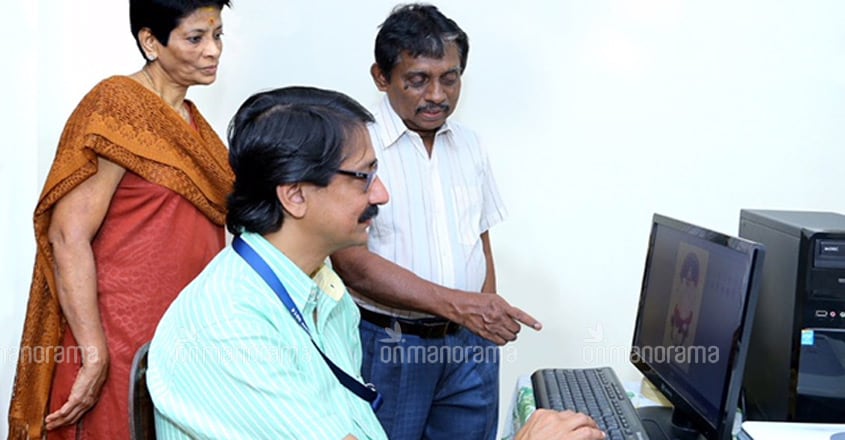
The flowers for the pookalam come from a Tamil trader who supplies them to Chinnamma every evening. “Jasmine has become too costly. So we have cut down a bit on that of late. Jamanthi is now the mainstay,” she says, pointing to the yellow chrysanthemums that make a thick dash of decoration at the doorstep. “We store them in the fridge. It’s only when we go out for occasional breaks of more than a day the pookkalam goes stale.”
Amid such small pleasures, Chinnama and Joseph are happy to learn that their son is being invoked at a major art festival happening in another pocket of the city. The Kochi-Muziris Biennale is into its third week as the subcontinent’s biggest event of its kind. The ongoing fourth edition of the Biennale is running alongside it a programme called ABC. It’s the acronym for ‘Art By Children’, which the organisers of the 108-day festival are organising in a bid to groom young talents.
“We are yet to visit the Biennale. Not very fit for travel, you know,” Chinnamma says. “But, one day soon, we’ll be visiting Fort Kochi,” she adds, referring to the main Biennale locale, 15 km away from their house near cacophonous Kacheripady.
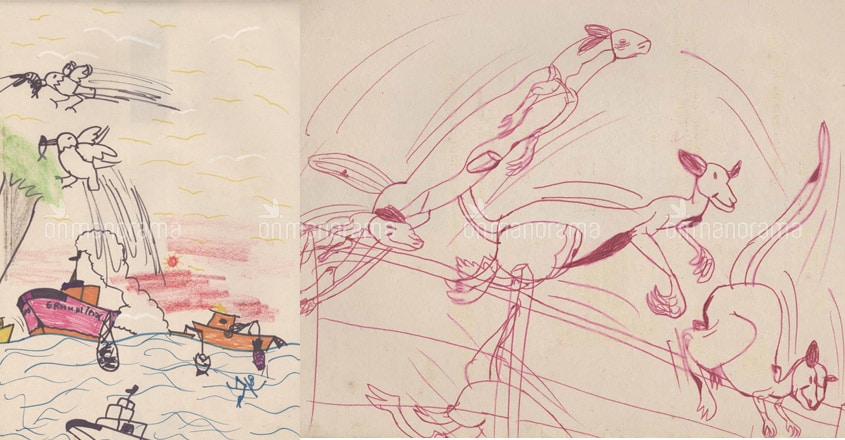
At the start of ABC this December 15, the Kochi Biennale Foundation had reminisced yet again the genius of Clint. “Quite a few works of his are a real master’s,” said artist Bose Krishnamachari, president of the Foundation that has been organising the once-in-two-years Biennale since 2012. “Clint’s father and mother felt inspired to save (a chunk of) those paintings and drawings. It shows the responsibility of a father and mother in grooming the artistic talent of their .”
It’s upstairs, on the first floor of their house, that Chinnamma and Joseph have stored Clint’s artworks. “Mone…” calls out Joseph in a polite tone as he escorts any visitor into the small room. “A guy has come looking for you.”
To seek Clint’s silent permission is a custom Joseph has been following all this while — again, as if the person is around. “It’s basic courtesy to introduce a guest at home to your son, right?”
The dim-lit room has at one glowing corner a medley of godly figures across faiths. A set of Ganapatis in varied shapes and colours, alongside a picture of the elephant-headed god’s blue-hued parents Shiva-Parvati and, of course, St Francis. In front of the Ganesha idols lies a small plate holding half-a-dozen part-burnt slices of coconuts. “Yeah, thengaapool. That’s an offering we make every day,” says Joseph. “On Clint’s behalf.”
Adjacent to the room, there is a brief area of roofed terrace with one side open. There, the couple continues to water a banyan tree rooted in the earth that fills a plastic bucket. “Clint was the one who brought the plant to our house. Just a sapling then,” winds back Joseph. “Ah, that was when he was a close to turning six.”
Downstairs, Chinnamma says it was when she had gone out one evening with Clint in 1982 that the boy said he would love to grow a banyan tree at their home, and chose this one from the roadside. “It isn’t easy for us city-dwellers to groom a tree…that too, on the terrace,” Joseph says. “Nevertheless, we find it gratifying.”
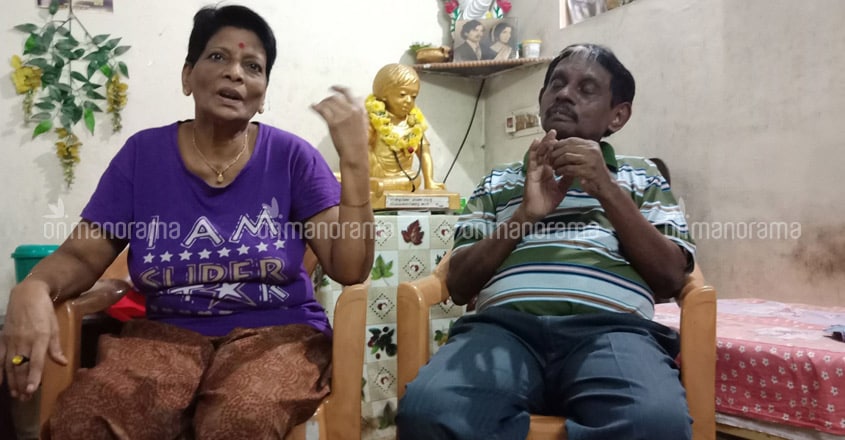
Clint’s love for the banyan tree apparently stems from his fondness for temples. “He loved Hindu festivals. Ulsavam, pooram…the sight of elephants, caparisoned and carrying the deity of the shrine in front of melam ensembles. Hence his love for Ganapati as well. Aanathambayi, as he used to call Ganeshas. Aana, you know, is the Malayalam for elephant. Thambayi is our in-house word for god,” says Joseph, who used to take his son far and near their house in another part of Kochi the family spent those days.
Marshy Thevara, halfway to the Biennale venue from Kacheripady, is where Clint was brought up as the only child of Joseph who was working as an auditor with the Central Institute of Fisheries Technology. A couple of years after the boy’s untimely death, the civic body named a Thevara road after Clint. It was after 37 years of government service that Joseph retired from the institution under the Indian Council of Agriculture Research. “In 2004,” he says. “That’s when we chose to live in this house.”
Was it only during festivals Clint visited temples? “No, not at all,” says Chinnamma, sporting a yellow-border vermilion round on her forehead. “He and I used to visit an ambalam in Thevara. Regularly. Clint liked its quietude. The priest said he could go in; only that he must remove his shirt.”
There, Clint fell in love with the idols. “We would ask him, half-jokingly: ‘Don’t you fear goddess Bhadrakali (known for her harsh look)?’. Clint will say, ‘No, she is my friend.’ Like Ganapati,” says the mother. “Out we go, and Clint will dot a round pottu on his forehead. He loved me too sport it. I enjoyed playing to his tunes whatsoever.”
It wasn’t as if the happy days were devoid of sadness. Clint was four-and-a-half years old when pills for a minor bout of dysentery gave him puffed eyes. A medical test that followed detected abnormally high count of albumin in the child’s urine. The allopathic doctor promptly attributed it to kidney disease and began prescribing medicines of heavy dose, says Joseph. “In hindsight, it turned out be a wrong move,” he adds.
Clint’s course of treatment did spring quite a few refreshing stories, though. The boy was taken to a medical scholar who doubled as a homeopath. “Joseph Abraham, that’s his name,” says Clint’s father. “On learning about Clint’s talent, he asked the boy to draw a lion. Clint drew just the tail of it, with the tuft of hair at the end. The doctor, amused, asked him to show the face of the animal. Clint conjured up with the looks of a ferocious lion on the paper in no time. That wowed the doctor!”
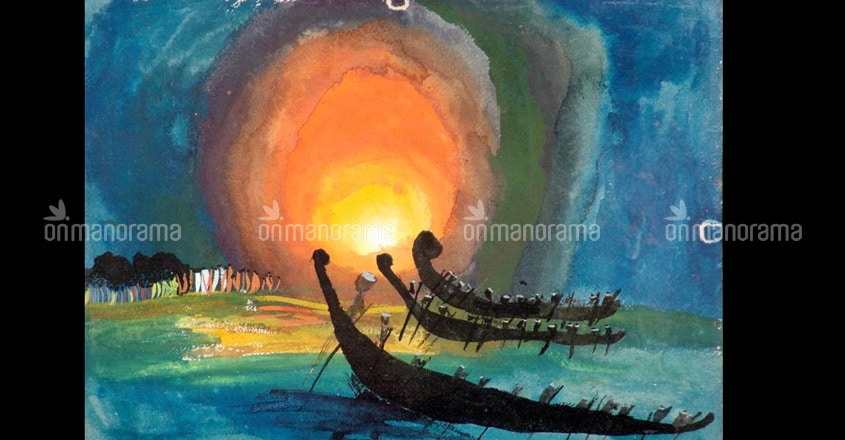
The session didn’t stop there: Clint drew a third picture, where the lion bore a “strange” expression. What is this, the doctor asked. It’s the lion looking at its girlfriend, the boy responded. Loud guffaws reverberated across the consultation room. A couple of years later, the same physician broke down in inconsolable grief, hearing about Clint’s end. “He was a strong man. We were told he hadn’t cried even when his mother passed away,” says Joseph.
Another time, at Mundamveli, near Thoppumpady off Kochi, Joseph took his family to a senior colleague named K J Augustine. “They used to have a dog, a ferocious one, virtually untamed. A cross-breed that was huge,” says Clint’s father. “Somehow, Clint suddenly got close to it. They began kissing, cuddling and playing even as we all stood nervous, watching. Finally, one among us managed to woo Clint back to us,” he says. “Animals of all kinds were Clint’s friends.”
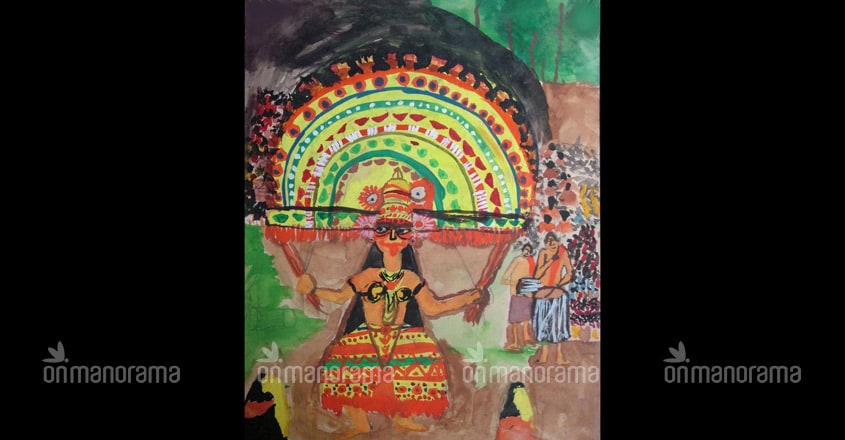
Chinnamma's house in green Manjummel, 20 km north of Ernakulam and close to riverine Aluva, was a frequent haunt of Clint. “We used to have a temple next door. Elephants were a highlight there during the festivals there,” she says. The shrine was built on a plot community organisation SNDP had bought from Chinnamma’s father, U R Joseph. The man was exceptionally crazy about Kathakali, says Chinnamma. “Mind you,” adds Joseph, with a smirk: “Those were times when watching this Hindu dance-drama amounted to ‘sin’ and warranted making a confession at the church.”
Manjummel subsequently turned out to be where Clint was buried.
As a matter of fact, Joseph’s father was himself exposed to classical music as a child. M K Thomas, as was his name, had a taste for Carnatic and also played the mridangam drum. “See, we had our house bang in the middle of Ernakulam Market. A high-commerce place that permitted no degree of cultural activity. Buy, sell, eat, drink and be merry. That was the family tradition. My father chose to break off from it,” says Joseph. “The man left for Tamil Nadu to train in cloth-dyeing at Salem and Tirupur. In the process, he also learned to read Tamil. Back in Kerala, he would recite ancient texts such as the Kamba Ramayana and Tirukkural.”
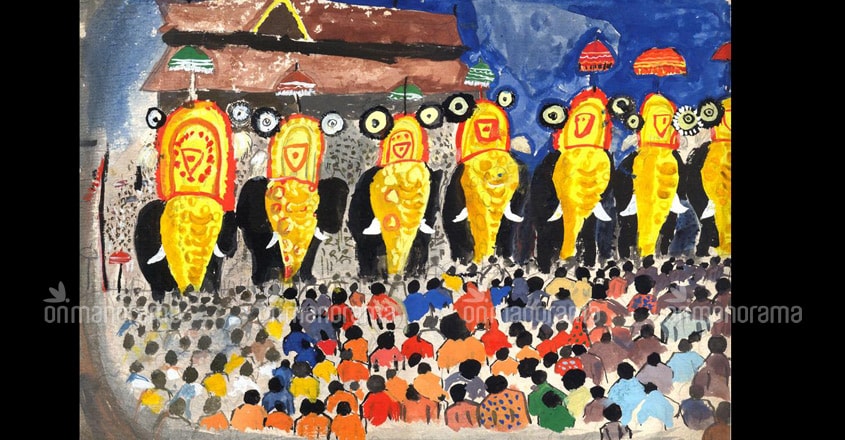
As for the grandson Clint, he was a sharp student at school with a good measure of friends. “Make no mistake, my son was outgoing,” says Chinnamma. “He would sometimes host parties for his classmates. Once Clint brought 35 of them! I could give each of them only two spoons of biriyani I had prepared for the occasion.”
Clint, even in times of later ill-health, seldom lost his cheer. Only, he sounded prophetic. “I may not wake up when you call me next time,” was one of his parting sentences. The death shattered Joseph and Chinnamma. So much so, they contemplated suicide before eventually managing to emerge from the extreme depression.
Today, the couple, in their old age, finds support from a middle-aged man who was their neighbour in the 1980s. Antony C Xavier is 53 and lives with his family in Thevara. From there, he frequently visits Chinnamma and Joseph, criss-crossing the bustling city on his two-wheeler. “I remember little Clint seen with his father along our bylanes,” he says, with a broad grin. “Never knew, though, the boy was such a genius.”
Edmund, Clint's first name, was inspired by the New Zealand mountaineer to first (in 1953) scale Mount Everest, the world’s highest peak, Joseph says. “Tenzing Norgay was the Sherpa who accompanied Edmund Hillary. Yet, he chose to announce to the world that theirs was a joined effort!” he notes. As for the second name, it comes from Joseph’s favourite actor: Clint Eastwood. The Hollywood icon, now 88, even sent Joseph an autographed photo of his in 1995 after viewing a documentary on little Clint screened in the United States.
Clint’s father used to give his son a naughty explanation on why he called the boy ‘Mon’. “Hey, it’s no way a derivation of makan (‘son’ in Malayalam) in case you thought so,” I would tell him. “It is just the short form of ‘Monster’.” Clint, thoroughly enjoying the joke, would tilt his head sideways and look down to the floor with a suppressed laugh, Joseph adds.
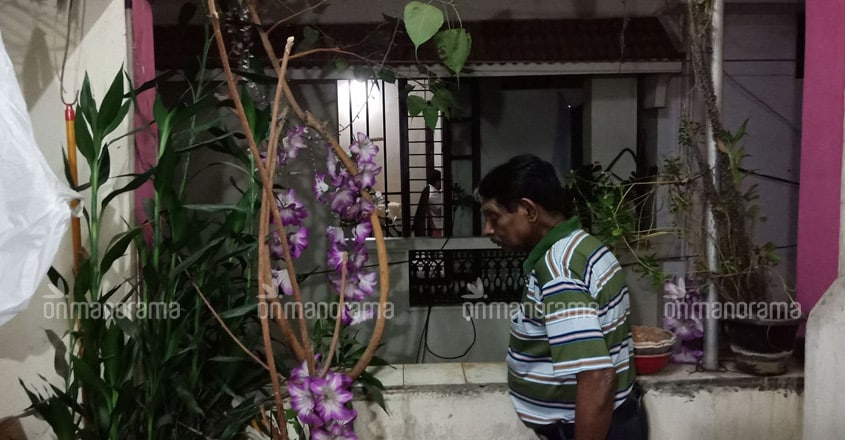
At this bit of recount, a heavy silence wraps Clint’s parents.

